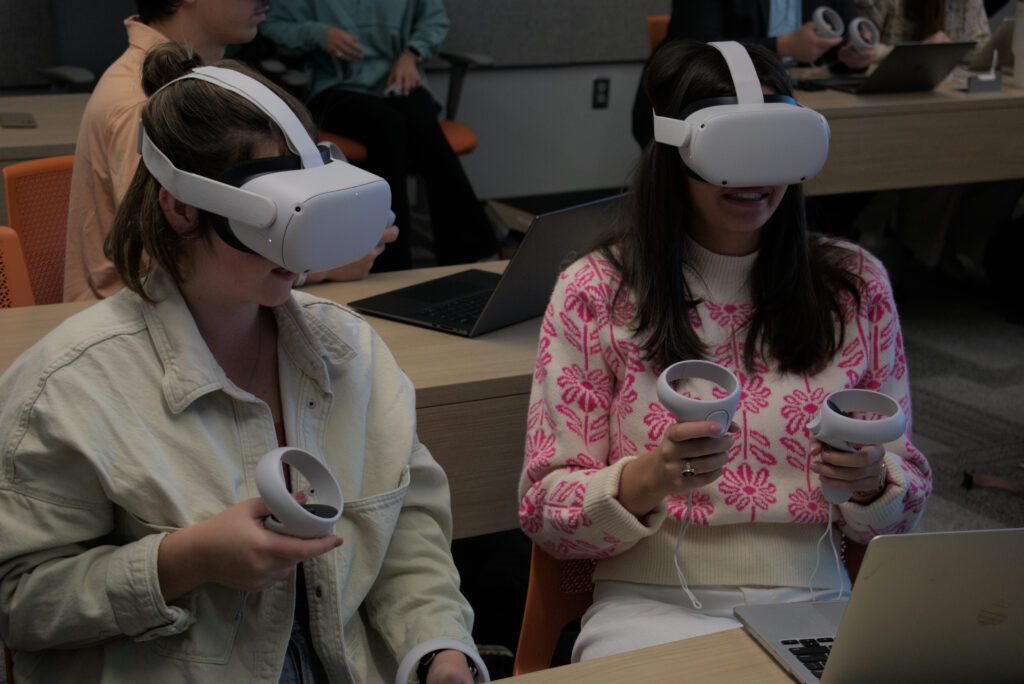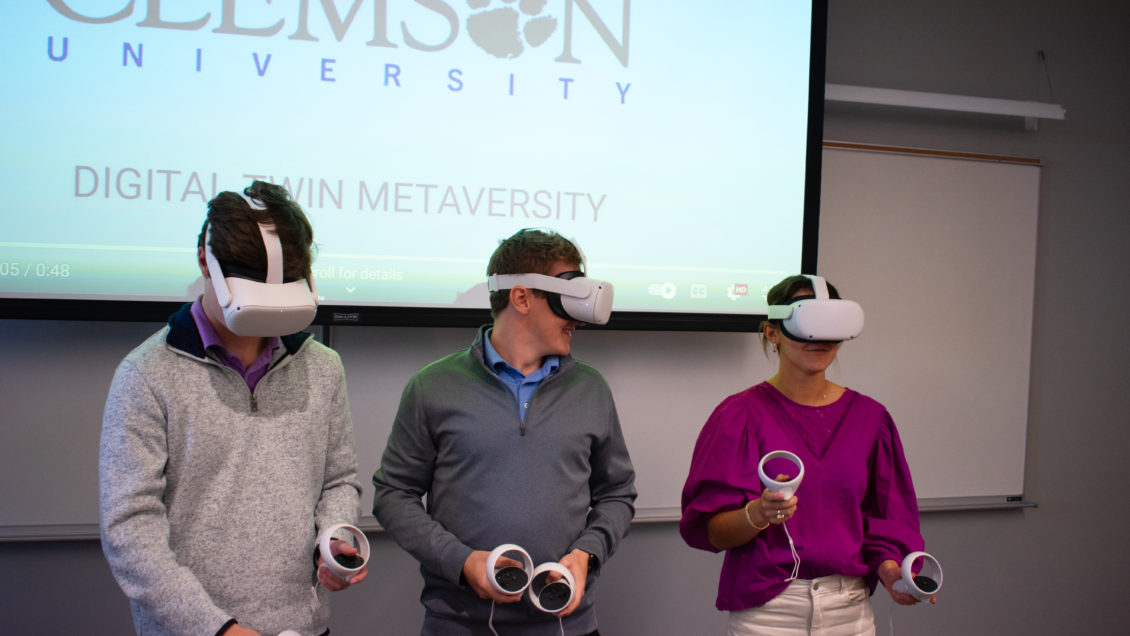Clemson University prides itself on delivering high-quality education to its students, ensuring they have extensive opportunities for mentorships, research, and experiential learning. To bolster the experiential learning experiences within the consulting course, Dirk Roskam, clinical assistant professor at the Wilbur O. and Ann Powers College of Business, is using augmented reality.
Students having access to immersive learning experiences is incredibly important to the Department of Management. They hope that by integrating augmented reality into the course, students will be better prepared for a 21st-century business landscape. This echoes Professor Roskam’s thoughts. “I think exposure to technological innovations and being a part of that early adoption process creates an extremely valuable learning experience from a student standpoint,” states Roskam. Having substantial experience as an executive leader and knowing the business world was beginning to use this type of technology, Roskam wanted students to have access to it as well in class.

During the restructuring of the consulting course, the department and Roskam knew the curriculum should mirror the real world as much as possible, providing students with experience that would be valuable post-graduation. In recent years, augmented reality, or VR headsets, have become increasingly more commonplace. Most people think of a gaming experience when they hear the phrase “VR headset” or think of it in a biomedical capacity; however, many companies are beginning to use VR as a means of facilitating training, consulting, and company communication. One of these companies is Accenture, which uses VR for onboarding employees and as collaboration spaces. In digital twins of the Accenture building, including a nth floor, employees can participate in the onboarding experiences and collaborate with coworkers around the world. The nth floor serves as a virtual space for employees to meet and talk using augmented reality, connecting people who might otherwise not be able to.
To initiate the beginning stages of bringing augmented reality into the classroom, Roskam reached out to VictoryXR, a virtual reality company. VictoryXR partners with higher education institutions to enhance student learning by means of augmented reality integration. They offer a grant funded by Meta, which Roskam applied for and received. Victory XR awarded the Department of Management 40 Oculus headsets, digital twin construction of the Wilbur O. and Ann Powers College of Business, and training for the incorporation of the headsets. The monetary equivalent of $100,500.
As part of the grant requirement, students check out VR headsets at the beginning of the semester through the Watt Family Innovation Center to use in the consulting course. Students can use the headsets at home, meet using VR headsets for group projects, explore digital twins of buildings or even attend class. Roskam uses VR headsets as a supplement to in-person instruction, allowing students to utilize them to support collaboration and deepen their understanding of content.
The consulting course partners with Deloitte, Grant Thorton, Thought Logic and PwC each of whom have a group of consultants who mentors teams of six students throughout the semester. The students present three big presentations to the representatives of the companies and industries regarding various consulting engagements. One group this semester has had the opportunity to use augmented reality to assist them with engagement for a hotel and restaurant business. They have access to digital twins of buildings in the hospitality industry, allowing them to gather, host meetings and work to prepare for their presentation.
The implementation of augmented reality does not come without its obstacles. Working with the Watt Family Innovation Center and the Office of Access and Equity, Roskam determined how to best facilitate the distribution of VR headsets to students in the consulting course, as well as accommodations to make the headsets as inclusive as possible.
Roskam credits several offices and departments across campus as major supports during the process of incorporating VR into the course. “None of this would have been possible without the support of the Powers College Business, the Department of Management, our department chair, Creative Inquiry, the Office of Access and Equity and the folks at the Watt Family Innovation Center,” Roskham shares. “Without their support, none of this would’ve been possible.”
Get in touch and we will connect you with the author or another expert.
Or email us at news@clemson.edu

